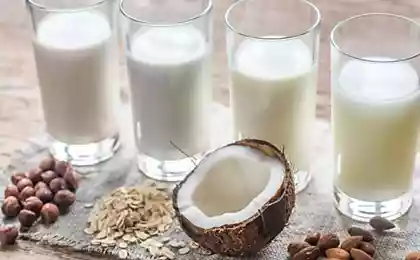318
Nutritionist explained: "Drinking milk by adults leads to death from ..."
From early childhood, we remember the cheerful saying: “Drink, children, milk, you will be healthy!” However, today, thanks to a lot of scientific research, the positive meaning of this statement does not seem so obvious. It turns out that not all adults and children milk is really useful. Moreover, in some cases, milk is not only not useful, but also dangerous to health!

If you ask consumers what milk should be, most will answer: fresh, natural, tasty, homemade. These are the criteria we pay attention to when buying. But can a fresh and natural product be considered quality, if it was obtained, for example, from a sick animal? What to pay attention to so as not to harm your health?
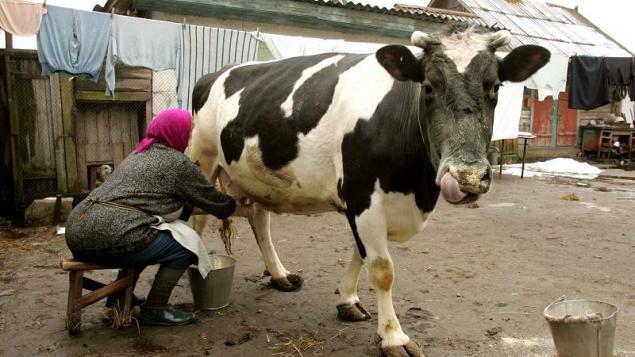
Healthy cows Pure milk can only be from healthy cows. At the same time, it is very important that the manufacturer conscientiously, and not only for the tick, monitor the health of the animals.
Mastite
Mastitis is an inflammatory disease of the mammary glands of an animal (udder). Its pathogens are most often streptococci and staphylococci. According to the International Dairy Federation (IDF), 12 to 80 percent of cows suffer from various forms of mastitis. In sick cows with milk, pathogens are released, which can cause food poisoning.
Since mastitis often occurs in a latent form, its diagnosis is the number of somatic cells in milk. Somatic cells are also found in the milk of healthy cows, but an increase in their number indicates the disease of cows and the unsuitability of milk.
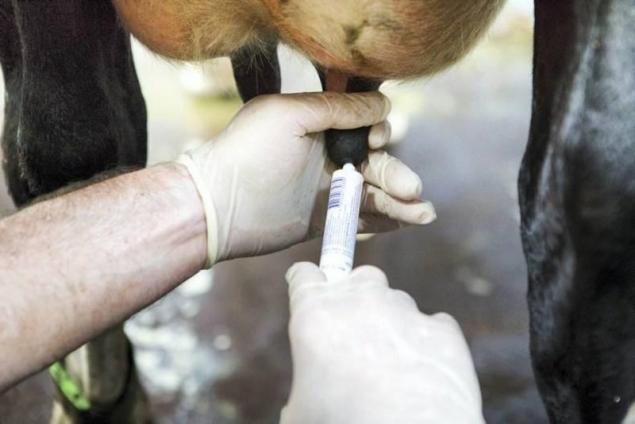
In theory, all cows should be supervised by a veterinarian and have the appropriate documentation. But for the owner of one cow it is quite expensive. Only farms supplying milk to large producers can provide real control.
tuberculosis
According to the WHO, there are 28 infectious animal diseases that are transmitted through milk. Thus, tuberculosis infection can be transmitted through the milk of sick cows, because the causative agent of tuberculosis of cattle is pathogenic to humans. Children are particularly susceptible to it.
564280
cattle leukemia
According to statistics, every fifth Burenka nurse suffers from leukemia. When infected with this virus, the hematopoietic system is affected, and at the same time cancers occur in the organs and tissues of the animal. What is disturbing is what has not yet been fully understood. leukemia It affects the human body.

Any supplements of non-dairy origin negate all the advantages and benefits of milk. There are many options for falsifying or simply trying to prolong the “life” of milk in a fraudulent way.
melamine
In October 2008, it was revealed that some Chinese companies added melamine to milk to increase protein concentration. It was reported that the total number of children poisoned by poor-quality dairy products was about 300,000, of which 53,000 were in China, six children died and 100 were in critical condition. When entering fresh milk, melamine is almost impossible to detect, and the health consequences of a person poisoned by a chemical can be very serious - the substance contributes to the formation of kidney stones, urinary tract ulcers, and also causes irritation of the skin and eye mucosa.

Antibiotics
Whatever dairy product you buy is likely to contain antibiotics. If the cow was treated with antibiotics or fed with hormones, then these substances will necessarily go into milk. According to the rules, a sick cow should be separated from the herd for three weeks (this is how long it takes for the natural removal of an antibiotic from the body), and the milk that is tired of it should be poured into the sewer. But can dairy farms afford such luxury? As a result, all milk - both from healthy animals and from patients - ends up in a common tank at the dairy.

Milk fat substitutes
In sour cream, cottage cheese, soft cheese manufacturers do not hesitate to add substitutes for milk fat. This greatly reduces the cost of production and increases profits. Because milk fat substitutes are cheap (they are made from coconut or palm kernel oil). Milk should contain only milk fat and necessarily in the amount declared on the label. There should be no vegetable fats in the milk. And although vegetable fats are more often falsified by butter and other fatty dairy products, there is also sometimes a substitution of fat in milk.
Nitrates
If the cow in the diet are food with a high content of nitrates, then these substances in significant quantities will be found in milk. It depends on the measure. Nitrates in small doses have not hurt anyone. But sometimes in the production of kefir, technologists are faced with a situation when milk flatly refuses to ferment. Blame nitrates, which showed the properties of preservatives. In this case, we can talk about nitrate overdose, harmful to health.
Pesticides – toxic chemicals to control plant pests – enter the milk through the food chain. One comforting thing is that since DDT (the world’s most resistant poison) was banned 30 years ago, pesticide contamination of milk has been slowly but surely declining. In the late 1980s, one in three samples of baby milk contained DDT in amounts five times higher than the permissible concentration. Falsification of milk
Milk is counterfeited, for example, by adding starch, chalk, soap, soda, lime, boric or salicylic acid and even gypsum to it. Soda is added to reduce the acidity of milk, and starch - to increase its density. Starched milk, if you add a few drops of iodine to it, will turn blue, and quality milk will turn yellow.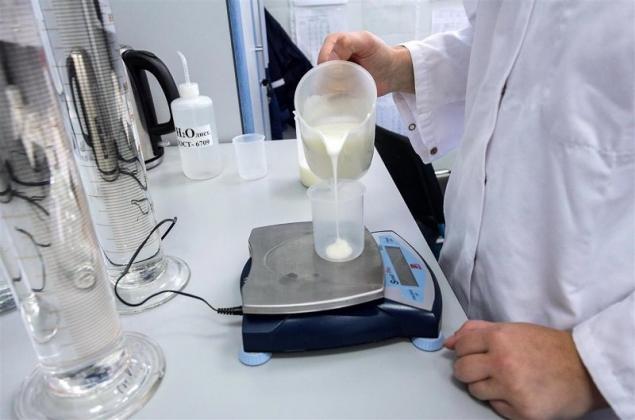
Milk quality test
It is believed that in the body of an adult, milk is not absorbed, but this opinion is far from indisputable. One of the most reputable medical research centers in the world, Harvard Medical School, has officially removed whole milk of animal origin from the list of products useful for human health.
However, it is explained that moderate and periodic consumption of milk is quite acceptable and safe. Milk has long been mistakenly considered the most important product for human life, health and longevity, but today it has lost its privileged status.
Who is to be believed: those who talk about the benefits of milk, or those who say that milk is harmful to an adult? Probably, the right solution is, as always, the middle ground: you should just listen to your body, be more attentive.
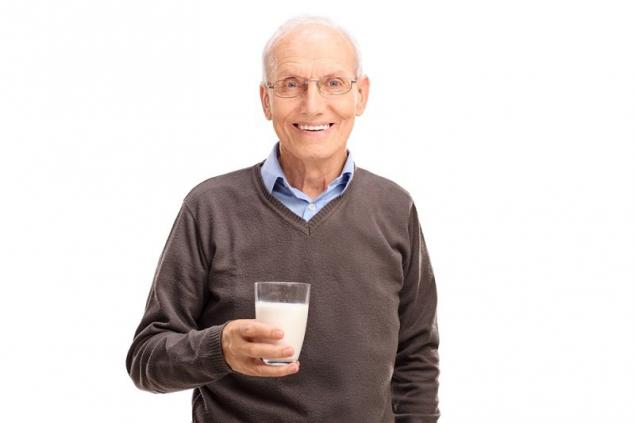
If, after drinking a glass of milk, you feel great – drink it and be healthy! If you doubt the origin of milk, especially if you bought it in the market or in the private sector, be sure to boil before consumption.

If you ask consumers what milk should be, most will answer: fresh, natural, tasty, homemade. These are the criteria we pay attention to when buying. But can a fresh and natural product be considered quality, if it was obtained, for example, from a sick animal? What to pay attention to so as not to harm your health?

Healthy cows Pure milk can only be from healthy cows. At the same time, it is very important that the manufacturer conscientiously, and not only for the tick, monitor the health of the animals.
Mastite
Mastitis is an inflammatory disease of the mammary glands of an animal (udder). Its pathogens are most often streptococci and staphylococci. According to the International Dairy Federation (IDF), 12 to 80 percent of cows suffer from various forms of mastitis. In sick cows with milk, pathogens are released, which can cause food poisoning.

Since mastitis often occurs in a latent form, its diagnosis is the number of somatic cells in milk. Somatic cells are also found in the milk of healthy cows, but an increase in their number indicates the disease of cows and the unsuitability of milk.

In theory, all cows should be supervised by a veterinarian and have the appropriate documentation. But for the owner of one cow it is quite expensive. Only farms supplying milk to large producers can provide real control.
tuberculosis
According to the WHO, there are 28 infectious animal diseases that are transmitted through milk. Thus, tuberculosis infection can be transmitted through the milk of sick cows, because the causative agent of tuberculosis of cattle is pathogenic to humans. Children are particularly susceptible to it.
564280
cattle leukemia
According to statistics, every fifth Burenka nurse suffers from leukemia. When infected with this virus, the hematopoietic system is affected, and at the same time cancers occur in the organs and tissues of the animal. What is disturbing is what has not yet been fully understood. leukemia It affects the human body.

Any supplements of non-dairy origin negate all the advantages and benefits of milk. There are many options for falsifying or simply trying to prolong the “life” of milk in a fraudulent way.
melamine
In October 2008, it was revealed that some Chinese companies added melamine to milk to increase protein concentration. It was reported that the total number of children poisoned by poor-quality dairy products was about 300,000, of which 53,000 were in China, six children died and 100 were in critical condition. When entering fresh milk, melamine is almost impossible to detect, and the health consequences of a person poisoned by a chemical can be very serious - the substance contributes to the formation of kidney stones, urinary tract ulcers, and also causes irritation of the skin and eye mucosa.

Antibiotics
Whatever dairy product you buy is likely to contain antibiotics. If the cow was treated with antibiotics or fed with hormones, then these substances will necessarily go into milk. According to the rules, a sick cow should be separated from the herd for three weeks (this is how long it takes for the natural removal of an antibiotic from the body), and the milk that is tired of it should be poured into the sewer. But can dairy farms afford such luxury? As a result, all milk - both from healthy animals and from patients - ends up in a common tank at the dairy.

Milk fat substitutes
In sour cream, cottage cheese, soft cheese manufacturers do not hesitate to add substitutes for milk fat. This greatly reduces the cost of production and increases profits. Because milk fat substitutes are cheap (they are made from coconut or palm kernel oil). Milk should contain only milk fat and necessarily in the amount declared on the label. There should be no vegetable fats in the milk. And although vegetable fats are more often falsified by butter and other fatty dairy products, there is also sometimes a substitution of fat in milk.
Nitrates
If the cow in the diet are food with a high content of nitrates, then these substances in significant quantities will be found in milk. It depends on the measure. Nitrates in small doses have not hurt anyone. But sometimes in the production of kefir, technologists are faced with a situation when milk flatly refuses to ferment. Blame nitrates, which showed the properties of preservatives. In this case, we can talk about nitrate overdose, harmful to health.
Pesticides – toxic chemicals to control plant pests – enter the milk through the food chain. One comforting thing is that since DDT (the world’s most resistant poison) was banned 30 years ago, pesticide contamination of milk has been slowly but surely declining. In the late 1980s, one in three samples of baby milk contained DDT in amounts five times higher than the permissible concentration. Falsification of milk
Milk is counterfeited, for example, by adding starch, chalk, soap, soda, lime, boric or salicylic acid and even gypsum to it. Soda is added to reduce the acidity of milk, and starch - to increase its density. Starched milk, if you add a few drops of iodine to it, will turn blue, and quality milk will turn yellow.

Milk quality test
- Wash the glass thoroughly and give it boiling water. Pour milk into it and cover it loosely. After a day, quality milk should sour.
- If the milk has not acidified in a day, it has preservatives, including, possibly, antibiotics.
- The milk was sour on time, but jelly-like yogurt did not form - it was diluted with water.
- Screws on time, but there is no sour cream film on top - the milk is passed through the separator and artificially defatted.
- In general, it does not sour and acquires a very unpleasant smell - this is a surrogate milk, maybe powder.
It is believed that in the body of an adult, milk is not absorbed, but this opinion is far from indisputable. One of the most reputable medical research centers in the world, Harvard Medical School, has officially removed whole milk of animal origin from the list of products useful for human health.
However, it is explained that moderate and periodic consumption of milk is quite acceptable and safe. Milk has long been mistakenly considered the most important product for human life, health and longevity, but today it has lost its privileged status.
Who is to be believed: those who talk about the benefits of milk, or those who say that milk is harmful to an adult? Probably, the right solution is, as always, the middle ground: you should just listen to your body, be more attentive.

If, after drinking a glass of milk, you feel great – drink it and be healthy! If you doubt the origin of milk, especially if you bought it in the market or in the private sector, be sure to boil before consumption.
Medical fasting! There are 3 factors that affect our well-being, health and appearance, which means...
I always keep a backup chicken breast in the fridge! In case of emergency guests or a quick dinner.

